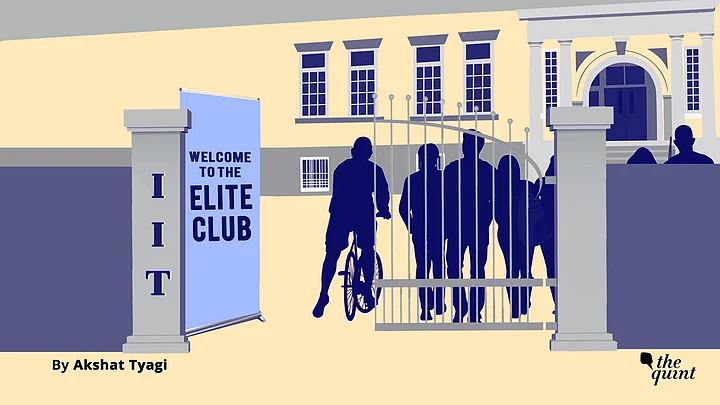We Indians have an old romance with anything even remotely related to the IITs. In India, IITs are a measure of general intelligence, leadership, empathy, perseverance, and everything else that you can fit into the box of ‘merit’. Of course, their graduates are ‘naturally’ the most qualified for every job, from running a play school chain to being defence ministers.
There is now even an exclusive IITians-led political outfit trying to champion the cause of socially and economically backward classes. Some fifty IITians, mostly from Delhi and Kharagpur, have quit their jobs and applied to the Election Commission for registration of their newly-formed Bahujan Azad Party.
Need for a Meritocracy
The inception was welcomed by political commentators and intellectuals alike. Yogendra Yadav, the founder of Swaraj Abhiyan, and N Paul Divakar, President of the National Campaign for Dalit Human Rights, carefully laced their enthusiasm with a caution – to not fall for them just because they are IITians.
What exactly is the problem with a party of IITians, or a party whose primary introduction is its leaders’ past association with certain institutions?
Firstly, exclusivity of leadership in activism isn’t new to the world of politics. Bahujan Azad Party is only a little too blatant in its description of which class of people will be in charge. Unsaid, much of the political leadership that engaged and negotiated with the British during the independence movement was educated in one city – London.
This is the formalisation of ‘good-looking’ privilege. Here, education and the privilege of having studied at elite institutions start shamelessly serving an instrumental purpose. Education doesn’t serve to make better people; some people are perceived as being ‘better’ because of their education.
Their validity of leadership isn’t derived from political activism, mass appeal or ability to understand ground issues, but solely from an unrelated stint as a student. They may surely give their constituents more reasons for why they deserve to be voted, albeit later, but for now, their embrace of media attention is wholly unnecessary. It perpetuates the myth of the ‘halo’.
How Does One Judge Merit?
To be an IITian you certainly must be meritorious, in keeping with the prevalent entry system. However, this ‘intelligence’ to crack a test and graduate from an elite institution cannot be the eligibility merit for entering political space. Being an IITian may be good for you — but that is it. Should association with educational institutions define merit in the larger society? Is it an achievement in itself to have studied at an exclusive college? These are open questions.
The idea of a utopian meritocratic society demands that we don’t exploit our identity, be it educational or biological – and achieve whatever we seek to by utilising credit relevant to only the rules of the game. The values and capabilities ideally suited for political offices should be the basis of merit here, not the preparation that might have gone into it.
For instance, it is foolish to decide the superiority of one photograph over another because the camera brand used to click it has a morally righteous CEO. That is a redundant detail that actually corrupts a fair judgement about the photograph.
But, perhaps it is too harsh a condition to place on debutantes, especially those who come from communities where even the right to reach the starting line had to be fought for.
What’s in a (College) Name?
The idea of caste is the idea of label-based inequality. Being Dalit or Rajput is a means to control how one should be treated in society. The ‘IITian’ tag sins on the same line, even if only marginally, by ‘demanding’ differential treatment.
By cultivating leadership exclusive to a group with a certain educational history, we risk perpetuating the same mentality which led to the Brahmanical slant that afflicts the leadership some other parties. It is snobbery, albeit of a new kind.
The only business for which an ‘IITian’ label in itself has any ethical value is in running coaching centres for IIT-JEE exam prep – a good self-serving ecosystem of believers.
But what do I know? I studied history at a nondescript college.
(Akshat Tyagi is the author of 'Naked Emperor of Education', India's first young voice against the de-humanising schooling model. He regularly writes on education, society, and politics. This is an opinion piece and the views expressed above are the author’s own. The Quint neither endorses nor is responsible for them.)
(The Quint is now on WhatsApp. To receive handpicked stories on topics you care about, subscribe to our WhatsApp services. Just go to TheQuint.com/WhatsApp and hit Send)
(At The Quint, we question everything. Play an active role in shaping our journalism by becoming a member today.)
